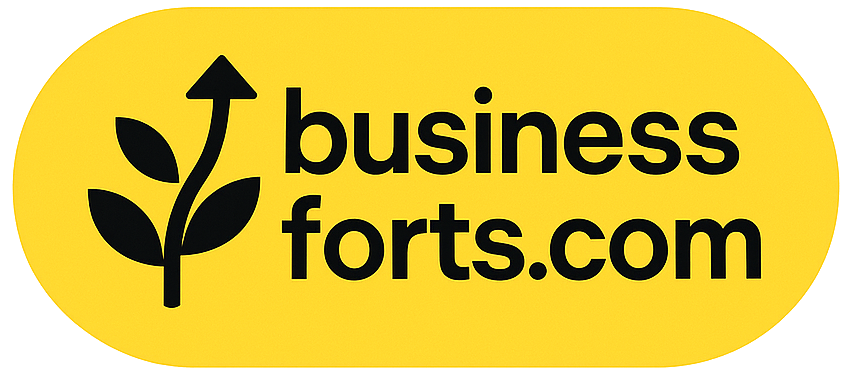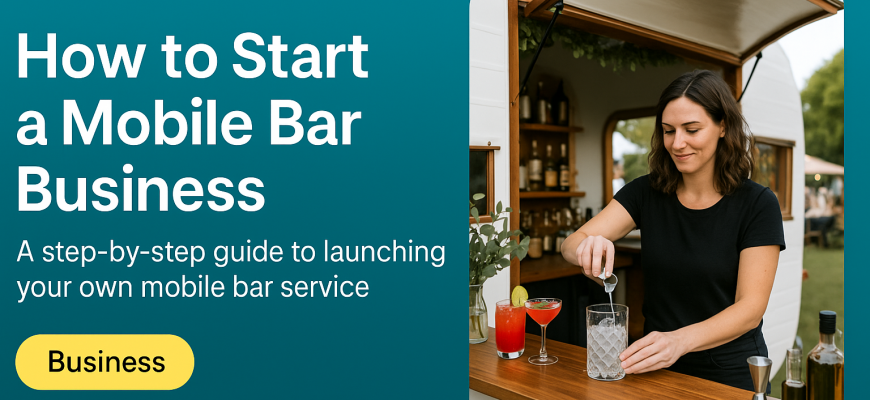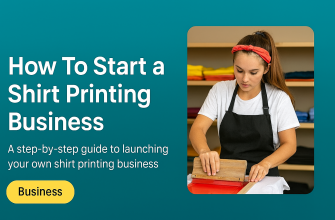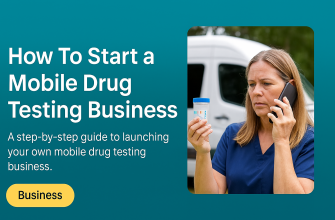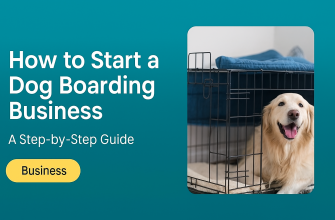Starting a mobile bar can be an exciting way to pour your passion into profit – and it’s a field ready for smart, driven women to make their mark. Mobile bars are booming: you can “dip a toe into the bar and events industry without having to commit to a costly brick-and-mortar lease”. As more couples, companies, and communities embrace food trucks and pop-up vendors at weddings, festivals and parties, they’re craving mobile bars to serve drinks. In fact, mobile bars still make up only a small slice of the overall food truck market (around 3.5%) – meaning there’s plenty of room to grow your business. Remember, women now own over 12 million businesses in the U.S., employing millions, and each day more women entrepreneurs are launching new ventures. You can absolutely be one of them! This guide will walk you through understanding the business model, handling legal requirements, creating your brand and menu, picking the right setup, marketing to clients, and avoiding common pitfalls.
Step 1: Know Your Market and Business Model
Before you invest in anything, clarify exactly what your mobile bar is. Are you a cocktail bar on wheels, a coffee-and-cocktail van, a non-alcoholic “mocktail” station, or something else? Mobile bars can take many forms – some run out of trucks or vans, others from small trailers or even portable carts. Think about the kind of events and customers you want to serve. Will you specialize in weddings (brides love unique bar experiences), corporate events, breweries and beer fests, or community fairs? Defining your niche will help you tailor your services.
-
Define your niche: Research local demand and competition. Are nearby mobile bars catering to weddings and fancy cocktails, or could they use a fun, all-occasion beer and sangria bar? Find a niche that resonates with you and your community. Maybe you’ll focus on craft gin cocktails for boho-chic weddings, or sparkling prosecco bars for birthday parties.
-
Decide what you’ll serve: Choose your menu focus – craft cocktails, coffee and espresso bar, beer and wine on tap, mocktails, etc. Consider offering signature drinks or customizable options, but keep your starting menu manageable. (Experienced mobile bartenders suggest offering a simple core menu at first to avoid overwhelming clients.)
-
Plan your services: Will you just rent out a bar setup, or also provide bartending staff? Some mobile bar owners even offer “bartending-only” service (where you bring staff to an event with its own bar) to help cash flow in early days. Clarify if you’ll sell alcohol on-site or simply serve drinks at events (selling alcohol usually requires a liquor license, as we’ll see next).
Understanding the market also means doing some basic research: look at event trends, talk to local venues or planners, and see who your ideal customers are. Identify how far you’re willing to travel – long drives cost more in fuel and time. Mobile bars thrive on personal service and flexibility, so knowing your customers will help you stand out. Remember, your unique vision is your strength: the advice is to focus on “serving people who you resonate with” – people drawn to the style and personality of your brand.
Step 2: Handle Legal Requirements and Permits
No matter how passionate you are, you can’t skip the paperwork. Setting up your mobile bar legally means getting the right licenses, insurance, and business registrations. These rules vary a lot by state and city, so make this a priority early on.
-
Business structure and registration: Decide whether to form an LLC or other entity (many small businesses use an LLC for liability protection) and register your business name. Apply for an Employer Identification Number (EIN) from the IRS, and file any “Doing Business As” (DBA) names if you’ll use a trade name.
-
Liquor licenses: If you plan to serve alcohol, check with your state’s Alcohol Beverage Control (ABC) board. Some states require a physical storefront to get a liquor license, others allow mobile catering permits. The process “varies significantly by state” – for example, Oregon and Vermont may require only annual paperwork, while California or Tennessee often mandate a permanent address or venue. In Florida or Nebraska you might need a catering partner, whereas a few states only allow one-day event permits or have almost no mobile-specific permits. In short, contact your local alcohol licensing agency early (many have guides online) and make sure you know exactly what’s needed.
-
Other permits: Even if you serve non-alcoholic drinks, you’ll likely need a health permit (since serving beverages can fall under food services) issued by your county health department. A mobile food truck or mobile catering license from your city may also be required for operating on the move. Always check city and county rules about mobile vendors.
-
Insurance: Protect yourself with liability insurance (sometimes called liquor liability insurance for bars) and vehicle insurance for your bar vehicle. Serving drinks comes with risks, so insurance is a must. Also look into workers’ compensation if you have helpers, and make sure any hired bartenders have up-to-date alcohol service certifications.
Licensing can feel like a headache – experts note that starting a mobile bar “can be a headache due to the amount of red tape” around permits. But don’t be intimidated: take it step-by-step, keep copies of every document, and consider consulting a lawyer or accountant who knows small business regs. It’s better to spend time on legal compliance now than to face fines or closure later.
Step 3: Build Your Brand and Menu
Your brand is what makes your bar you. Think about a memorable name, color scheme, and style that reflect your personality and your target audience. Are you sleek and modern, rustic and vintage, playful and colorful? Your bar’s design – from the signage on your van or cart to the staff’s attire – tells a story. Everything should fit your brand: if you want to attract boho weddings, you might decorate with florals and serve drinks in mason jars; if you’re going for hipster street-fair vibes, maybe edgy chalkboard menus and craft beer taps are your look. Experts advise to focus on the style you connect with, because “people who like the style of your brand are more likely to choose you”.
Once you have a brand theme, develop a simple but appealing drinks menu. Start with a core list of offerings: perhaps a couple of signature cocktails, a couple of beers/wines, and a non-alcoholic option. You might also incorporate local trends – for example, plant-based mixers or low-ABV spritzers are popular. You could host a tasting event or send samples to friends/family to get feedback. Remember that clients often like some customization (e.g. choosing ingredients for a custom cocktail), so be flexible. However, avoid giving too many choices, which can overwhelm clients. As you grow, you can rotate specials or seasonal drinks. Designing a menu that fits your brand (e.g. using creative names, custom glassware, a styled menu board) will make you stand out on social media and to event planners.
Don’t forget to trademark your name and logo through the U.S. Patent and Trademark Office (USPTO) if you plan on building a brand for the long haul. This protects your business identity.
Step 4: Choose Your Vehicle or Bar Setup
A mobile bar doesn’t always mean an enormous truck. In fact, many successful owners start with a simple setup. You have options ranging from a converted food truck or trailer, to a portable bar cart or even a refurbished piece of furniture.
-
Portable bars: You can begin with a portable bar unit – essentially a stand-up bar station that you set up at events. These range from foldable folding tables with skirts (very affordable and easy to transport) to modular folding bars with counters and shelves. The upside is low cost and easy setup; the downside is fewer built-in features (no fridge or sink). This is a great way to test the market without sinking thousands into a custom rig. Many pros actually “seldom use” their big rigs and find a pop-up or tabletop bar “is sufficient” in the early days.
-
Trailer or converted van/truck: If you want something flashier and have the budget, you can convert a van, trailer, or retrofitted horse trailer into a rolling bar. Bar trucks have the advantage of built-in equipment (refrigeration, sinks, storage) and huge branding visibility. They offer the best mobility for bigger events. However, they are more expensive and require vehicle maintenance, fuel, and a large parking space. They also may be too large for small indoor venues.
-
Creative alternatives: Some mobile bartenders use unconventional setups like a bicycle cocktail cart, or a bar cart in a parking lot. If money is tight, even repurposing a bar-height table and adding decor (like a nice tablecloth or floral skirt) can work. The goal is to look polished and aligned with your brand without overspending.
Whatever you choose, ensure it’s road-legal. You may need a commercial driver’s license if your vehicle is above a certain weight (check state rules). And always plan where you’ll keep and store your bar between events – a garage or shared kitchen space can work.
Step 5: Market Your Bar and Book Clients
Even the most beautiful bar won’t sell itself – you must get the word out. Start by building a professional brand presence: create an Instagram/Facebook page and post photos of your setup (maybe a mock or styled event), and build a simple website or directory listing with your services and contact info. Great images of drinks and events are powerful, so think about staging a few for your portfolio or doing a styled shoot with friends.
-
Networking: Reach out to local event planners, wedding coordinators, and venues. Visit bridal shows, vendor fairs, and bridal boutiques to introduce your business. Many mobile bar clients come by referral from DJs, caterers, or bartending agencies. Forming partnerships – for instance, offering a discount to clients from a popular catering company – can kickstart bookings.
-
Social proof: Offer a discounted demo or special for your first few events in exchange for testimonials and online reviews. Word-of-mouth and online reviews are gold for service businesses. Encourage customers to share on social media and tag your bar. A well-placed hashtag or feature on a local event page can boost visibility.
-
Special events & promotions: Advertise at community events (farmers markets, block parties, fundraisers) where you might set up a sampling bar. Some owners run an occasional public pop-up (with local permits) to showcase their style. You could also start a newsletter or blog about cocktail recipes or event trends to keep followers engaged.
Always have business cards or a brochure handy. And don’t forget follow-ups: after each event, ask clients for feedback and referrals. As one guide puts it, “your business won’t succeed if no one knows you exist” – so be proactive in marketing.
Common Pitfalls to Avoid
Starting any business comes with hiccups. Here are some traps to watch out for:
-
Skipping the plan: Nearly 60% of mobile food businesses fail by year 3, often because owners didn’t craft a solid business plan or educate themselves first. Don’t assume success will come easily. At minimum, write out your startup costs, a simple budget, and a few financial projections (how many events per month to break even). This doesn’t have to be complex, but a bit of planning goes a long way.
-
Underestimating legal costs: As mentioned, licenses and permits can be costly and time-consuming. Some areas require a local address or agency partnerships, which can be surprising. Don’t ignore these expenses or timelines. If a state requires a brick-and-mortar license for alcohol, you may have to partner with a caterer or hire a licensed third party (Tap Truck USA notes some states need that). Always budget for permit fees and wait times.
-
Buying a fancy rig too soon: It’s tempting to go all-out with a custom van or trailer, but experts warn this is a huge upfront cost that may not be used often. Many new owners “seldom use” their rigs and end up with debt and an underused vehicle. Instead, start small (a portable bar or basic setup) and upgrade once you have steady income.
-
Poor cash flow management: Even a small mobile bar needs working capital. You’ll have upfront costs (stock, supplies, permits) before any event earns money. Keep a cushion or a small loan for the first few months. Track your expenses and day-of-event costs (like extra staff, tolls, or overtime) so you don’t get burned.
-
Neglecting marketing: Some folks think “build it and they will come,” but without marketing, clients may never find you. Don’t rely only on word-of-mouth. It may be helpful to set a marketing budget (even $20/month on social media ads targeting local engaged couples, for example, can help).
-
Ignoring insurance and safety: Serving drinks means responsibility. Always card patrons for age, maintain a safe working environment in your small space, and never skimp on insurance. Liability claims or accidents can wipe out a small business.
By planning carefully and learning from others’ mistakes, you’ll navigate these pitfalls and build a sustainable business.
You’ve Got This – Take the First Step!
You’ve now got a roadmap. Remember: every expert was once a beginner. You’re not jumping in blindly – you’ve done your homework by reading this guide and you’re more prepared than many. Starting a mobile bar is an empowering adventure, and as a woman entrepreneur you’re in great company: women-owned businesses in America are surging, and they keep breaking records.
The first step could be something small: sketch out a name and logo on a notepad, or look up your city’s mobile vendor license online. Maybe reach out to a friend to do a trial bartending session. Celebrate each little milestone – the first draft of your menu, the first promotional post, the first inquiry from a potential client. Lean on your support network: fellow bar owners, women’s business groups, or a mentor (even an online group) can offer advice and encouragement.
Above all, trust yourself. You have the vision, creativity, and drive it takes. Days may be long at first, and challenges will pop up, but your passion will carry you through. Every sip you serve will be a toast to your success. So take a deep breath, pour yourself your dream cocktail (or coffee!), and take that first step. Go out there and make magic happen!
